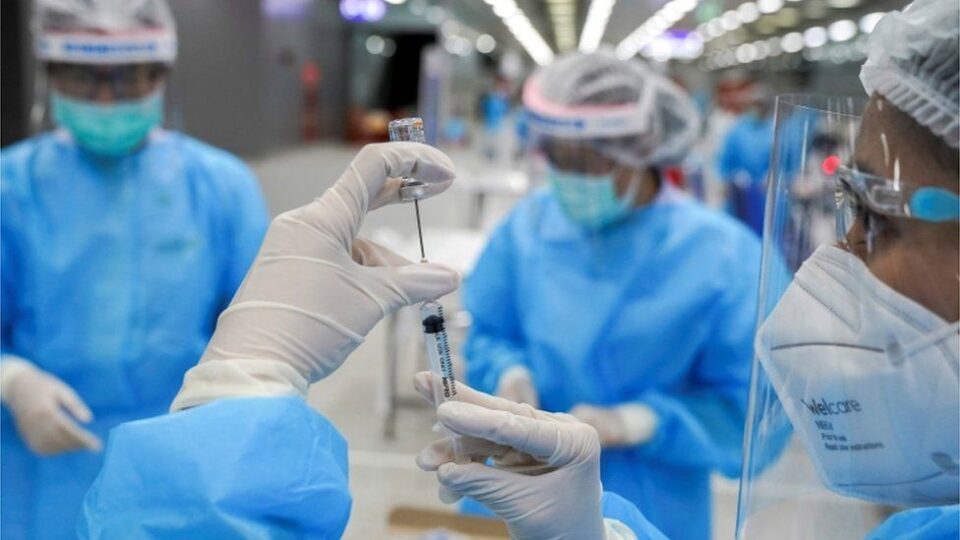Thailand’s free mass vaccination programme is finally being expanded to younger kids. From this week, children aged 5 to 11 are eligible for jabs against COVID-19, having braved two years of the pandemic without any vaccine protection.
While all children in the younger age group are invited to get a shot now, priority is being given to kids who are more vulnerable to the virus and its symptoms. This at-risk group includes children who are battling diabetes or obesity.
The Education Ministry says about 2.57 million kids aged 5 to 11 have already been registered for COVID-19 jabs via their schools. But this number accounts for just 61.4 per cent of students in this age range, so the ministry plans to intensify its promotion of COVID-19 vaccination for younger students.
Parents’ lingering concerns
Children cannot get jabs without their parents’ consent. While millions of kids around the world have already been vaccinated against COVID-19, the percentage vaccinated in the 5-11 age group is still far lower than for other eligible age groups. One reason for this is the late registration of COVID-19 vaccine for young kids. However, another reason for the lower uptake in this group is parents’ fears about possible side effects.
In Thailand, many parents have admitted to being concerned about signing their young kids up for vaccination.
Thailand’s vaccine choice for young kids
Up until Friday, the only COVID-19 vaccine choice approved for kids here is Pfizer’s mRNA pediatric formulation. It comes in orange-cap vials. Each 1.3ml orange-cap vial will be diluted with the same amount of saline. Kids will then be given a 0.2ml dose, each containing 10 micrograms of the vaccine.
The gap between the first and second doses should be around three weeks. Kids who have already caught the virus are advised to take just one shot at least three months after recovering.
The Royal College Pediatricians of Thailand says that Pfizer’s orange-cap formulation is very safe, citing information from the United States. The US administered more than 7 million doses to children aged 5-12 between November 2 and December 9last year. Only eight developed myocarditis (heart swelling) and most made a full recovery.
The Royal College is yet to recommend any other vaccines for kids due to limited information about their impacts on youngsters, said its secretary-general Dr Somsak Lohlekha.
He was speaking shortly before the FDA on Friday also okayed Sinopharm and Sinovac vaccines for children aged six and above. Rather than the mRNA technology used in Pfizer jabs, both these vaccines are made with the older inactivated-virus method.
COVID-19 jabs for kids overseas
Other countries that have chosen Pfizer as a tool to protect their young kids against COVID-19 include Singapore, Malaysia, Dubai and Canada. Meanwhile Hong Kong, Indonesia and Cambodia have embraced Sinovac – which like Sinopharm is produced by China.
Sinopharm has also been administered to young children in several countries, including the United Arab Emirates and Argentina.
Do young kids need to be vaccinated?
The World Health Organization says that while most young kids develop mild or no symptoms when infected with COVID-19, some do get seriously ill. COVID-19 also threatens to aggravate any underlying health condition a child may already have.
Thai authorities add that young kids who do get infected may become carriers of the virus, posing dangers especially to elderly members of their family.
According to the Health Department, 8-9 per cent of new COVID-19 infections in Thailand occur in children aged seven to 12 years old.
By Thai PBS World’s General Desk





